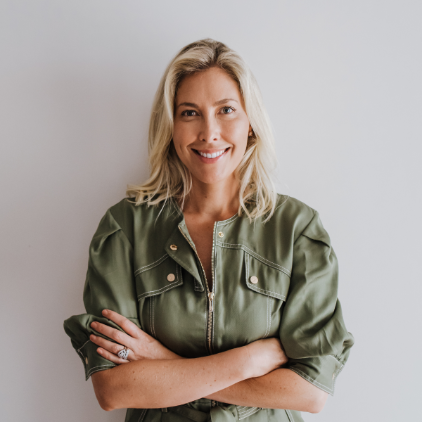UOW exists thanks to the generosity of donors
You can change lives by empowering our brightest minds and future leaders
UOW graduate and Founder of EQ Minds says you’re not alone
1. Give Yourself a break
Whilst you may want to get straight into your career, you should take a minute to breathe and think about what you’ve achieved. Completing a degree is an incredible accomplishment, allow yourself to sit in it, reflect and be proud.
2. Stop comparing yourself to others
Everyone is on their own journey, whilst you may have friends who excel in their careers quickly, it’s important to not compare yourself to their success. Focus on what you are doing and what you can control.
3. Sweat it out
A study conducted by the National Library of Medicine found those who exercise tend to experience lower levels of anxiety compared to those who don’t. Moving your body is one of the best natural ways to release endorphins and relieve stress.
4. Get enough sleep
A lack of sleep and anxiety are connected. When you’re not sleeping well, your body releases more cortisol, a hormone associated with stress. A 2013 study also found that sleep deprivation intensified reactions in the amygdala, this is the part of the brain associated with anxiety and stress. Make sure you are getting 7-9 hours of sleep each night. Read more about how to improve your sleep here.
5. Talk to your friends
If you are feeling stressed, it’s likely your friends are feeling the same way. Talking to someone can help you feel less alone and lighten the load of the concerns you are experiencing. Alternatively, if you are feeling high levels of anxiety, you should speak to a healthcare professional.
6. Make time for the things you love
Life isn’t and shouldn’t just be about work. Remember to make time for the things you love. Whether that’s reading, painting, playing music, camping or practicing yoga. Hobbies provide a great outlet for stress and anxiety, they take your mind off worries and have a positive impact on your mental wellbeing.
7. Use mindfulness
Research shows that mindfulness reduces anxiety and depression. By practicing relaxed awareness and focusing on the present moment, you become more in control of your mind. Try this meditation for anxiety relief.
8. Create an action plan
Outline a plan for the months ahead. Describe your goals and include action to each goal. Sometimes when we feel overwhelmed or anxious it’s because there is so much going on inside our minds. Writing it out can really help. Read more about setting effective goals here.
9. Find a professional mentor
If you are anxious about the job market, applications, interviews and where to even begin, you should consider seeking a mentor. The best way to find a mentor is by building an authentic connection first. Have a brainstorm about who in your support system can help you, attend career events and remember to reach out!
10. Focus on what you can control right now
Although it’s important to have a plan, don’t spend time worrying about where you will be in ten years’ time. Focus on what you can control right now and take the steps necessary to achieve that.
Remember that if you are experiencing post-grad anxiety, you are not alone. You have achieved an amazing milestone by completing a degree, the same focus and determination will help you accomplish life post university.
If you would like to learn more about how to manage anxiety, my new book The Mindful High Performer is filled with insights and tools from personal experience, science and psychology.
--

Chelsea Pottenger is a University of Wollongong graduate (Bachelor of Commerce, Marketing), an international motivational speaker and founder of EQ Minds. Chelsea has worked with the world’s biggest brands, training professionals in every field to take charge of their mental wellbeing. She recently released her book The Mindful High Performer, which launched at Number 1 in Self-Help & Personal Development for Booktopia.
You can change lives by empowering our brightest minds and future leaders